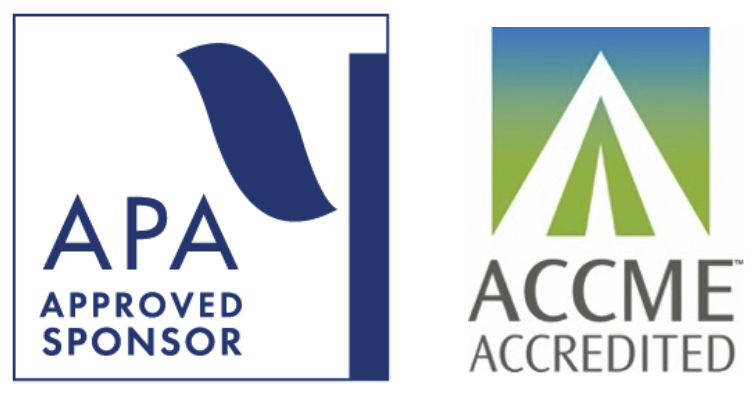The 10th Annual James Grotstein Memorial Lectures in Comparative Psychoanalysis
Winnicott in America
Saturday, January 25, 2025 | February 15, 2025 | March 15, 2025
Online via Zoom
(3-part series participation encouraged; single lecture tickets available)
Optional CME/CE Credits available for $15 per credit (Free for SFCP Members)

Throughout the international psychoanalytic community, James Grotstein’s analytic work advocated for learning from the various analytic traditions populating its universe, especially from British Object Relations theory. In honor of Grotstein’s work in comparative psychoanalytic theory, there will be a series of 3 virtual meetings featuring D.W. Winnicott’s papers delivered in America, including his reflections on the incommunicado self, Kleinian notions of development, ego psychology, and American culture.
Mental health clinicans from all clinical backgrounds are welcome, and the program will be offered via Zoom video-conferencing (Pacific time) to allow for discussion with participants from all geographical locations. Participants are encouraged to register for the full 3-part series for maximum immersion; however single lecture tickets are also available. Pre-registration is required, and CE/CME credit is available on an optional basis for each program.
Part 1: Winnicott in San Francisco:
“On Communicating and Not Communicating”
Saturday, January 25, 2025 (2 CE/CME credits available)
9:00 am – 11:00 am (Pacific Time)
Presenter: Peter Goldberg, PhD
In pursuing the leading edge of his groundbreaking work in clinical psychoanalysis in this 1962 San Francisco Lecture, Winnicott broached the importance of not communicating, questions about feeling real, about “true self” experience, about communicating with others, and about the experience of being alive in the world.
Part 2: Winnicott in Los Angeles:
On The Kleinian Development
Saturday, February 15, 2025 (2 CE/CME credits available)
Time: 9:00 am – 11:00 am (Pacific Time)
Presenter: Joseph Aguayo, PhD
Safe and faraway from London, Winnicott was at last free to “give his slant” on the Kleinian development. This Los Angeles lecture was a searching appreciation and critique of Klein’s theories as experienced by Winnicott during his ‘Kleinist’ years as well as after he broke with Mrs. Klein with the publication of the ‘Transitional Objects’ paper in 1951.
Part 3: Winnicott in Topeka:
Ego Psychology, American Culture, and Object Relations – Style and Substance in the ‘Stage of Concern’
Saturday, March 15, 2025 (3 CE/CME credits available)
9:00 am – 12:00 pm (Pacific Time)
Presenter: Stephen Seligman, DMH followed by panel discussion with Joseph Aguayo, PhD; Peter Goldberg, PhD; and Stephen Seligman, DMH
Presented at the legendary Menninger Clinic in 1962, Winnicott’s ‘Stage of Concern’ paper received a mixed but somewhat interested reception at the bastion of Ego Psychology. It represented Winnicott’s deft reworking of the Kleinian depressive position based on his pediatric and psychoanalytic work with mothers and infants. [Note: 3-hour program which includes a panel discussion with all presenters in the series].
About the Speakers:
Joseph Aguayo, PhD is a Training and Supervising Analyst at the Psychoanalytic Center of California, an Associate Member of the New Center for Psychoanalysis, and a Guest Member of the British Psychoanalytical Society in London. He merges his clinical and research interests by publications in the International Journal of Psychoanalysis on the clinical history of Kleinian, Bionian and Winnicottian psychoanalysis. Recent books: Introducing the Clinical Work of W.R. Bion, (Routledge Bion Series, 2023); Bion in the Consulting Room: An Implicit Method of Clinical Inquiry (with R.D. Hinshelwood, S. Dermen and N. Abel-Hirsch), Routledge, 2024.
Peter Goldberg, PhD is a graduate analyst and co-Chair of the Faculty Committee of the San Francisco Center for Psychoanalysis (SFCP). His training as a psychotherapist included several years in community mental health, working with a chronic schizophrenic population and in adolescent day treatment settings, as well as a fellowship in child and adult psychotherapy at Children’s Hospital of San Francisco. He is currently in the private practice of psychoanalysis and psychotherapy and is involved extensively in supervision, group consultation, and lecturing in the area of British object relations theory as well as teaching at SFCP, PINC, and the Wright Institute. His latest book: Here I am Alive: The Spirit of Music in Psychoanalysis (with Adam Blum and Michael Levin, (Columbia Univ. Press, 2023).
Stephen Seligman, DMH is a Professor at the University of California, San Francisco, and the New York University Postdoctoral Program in Psychoanalysis and Psychoanalytic Psychotherapy. He is a Training and Supervising Analyst at the San Francisco Center for Psychoanalysis & Psychoanalytic Institute of Northern California and has authored many distinguished publications on developmental & relational psychoanalysis and infant-parent research, including his book Relationships in Development: Infancy, Intersubjectivity, and Attachment (Routledge, 2018).
Accreditation Statement for CME/CE Sponsorship and Disclosure Statement

Educational Objectives:
Upon completion of this activity, the learners will be able to:
- Part 1: specify how the analyst can cultivate a “private, non-communicating self” vis-a-vis non-shared communications with patients that is different from traditional notions of countertransference.
- Part 1: specify Winnicott’s critique of Melanie Klein’s failure to take environmental factors into her account of pathology.
- Part 2: differentiate Klein’s view of the child’s internal mother from Winnicott’s view of the environmental and object mother.
- Part 2: differentiate Klein’s view of the earliest state of the infant’s experience in terms of the paranoid/schizoid position.
- Part 3: differentiate Winnicott’s ‘stage of concern’ from Klein’s ‘depressive position.’
- Part 3: describe how Winnicott’s theories of early infant development were received in the ego psychology environment of the Menninger Clinic in Topeka.
ACCME Accreditation Statement
This activity has been planned and implemented in accordance with the accreditation requirements and policies of the Accreditation Council for Continuing Medical Education (ACCME) through the joint providership of American Psychoanalytic Association and San Francisco Center for Psychoanalysis. The American Psychoanalytic Association is accredited by the ACCME to provide continuing medical education for physicians.
AMA Credit Designation Statement
The American Psychoanalytic Association designates this live activity for a maximum of 7 AMA PRA Category 1 Credit(s)™. Physicians should claim only the credit commensurate with the extent of their participation in the activity.
Disclosure Statement
The APsA CE Committee has reviewed the materials for accredited continuing education and has determined that this activity is not related to the product line of ineligible companies and therefore, the activity meets the exception outlined in Standard 3: ACCME’s identification, mitigation and disclosure of relevant financial relationship. This activity does not have any known commercial support.
PSYCHOLOGISTS: The San Francisco Center for Psychoanalysis is approved by the American Psychological Association to sponsor continuing education for psychologists. The San Francisco Center for Psychoanalysis maintains responsibility for this program and its content.
Psychologists attending SFCP events approved for CE credits may report AMA PRA Category 1 Credit(s)™ toward their CE requirements. Psychologists self-certify the number of hours they have completed on their renewal form (whether online or paper).
LCSWs/MFTs: The San Francisco Center for Psychoanalysis is a continuing education provider that has been approved by the American Psychological Association, a California Board of Behavioral Sciences recognized approval agency
Psychologists, Social Workers, and Marriage and Family Therapists will be awarded AMA PRA Category 1 Credit(s)™ on an hour for hour basis; see the program description for the maximum of credits awarded for each program.
Commercial Support: None
